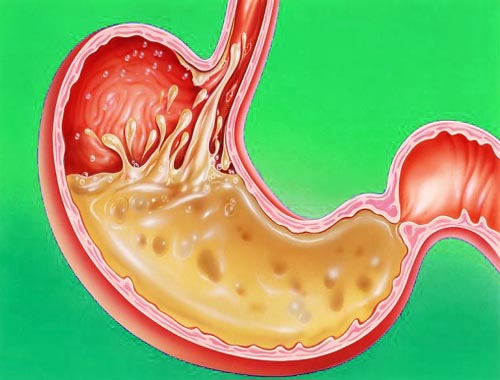Gastroenteritis (Enteritis, Colitis)
Gastroenteritis is inflammation of the stomach and small and large intestines. Viral gastroenteritis is an infection caused by a variety of viruses that results in vomiting or diarrhea. It is often called the "stomach flu," although it is not caused by the influenza viruses. Many different viruses can cause gastroenteritis, including rotaviruses; noroviruses; adenoviruses, sapoviruses; and astroviruses. Viral gastroenteritis is not caused by bacteria such as Salmonella species or Escherichia coli, or parasites such as Giardia lamblia, or by medications, or other medical conditions, although the symptoms may be similar. Your doctor can determine if the diarrhea is caused by a virus or by something else. The main symptoms of viral gastroenteritis are watery diarrhea and vomiting. The affected person may also have headache, fever, and abdominal cramps ("stomach ache"). In general, the symptoms begin 1 to 2 days following infection with a virus that causes gastroenteritis and may last for 1 to 10 days, depending on which virus causes the illness.
